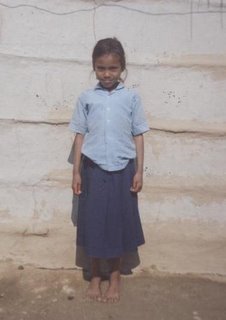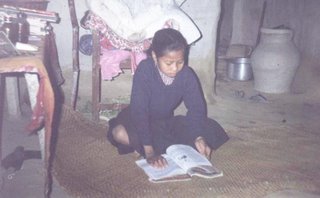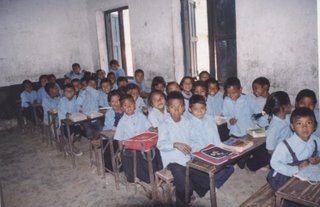Thursday, March 30, 2006
Wednesday, March 29, 2006
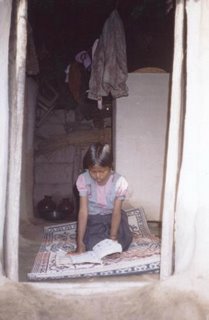
Chandrika studying in the doorway of her home.
In the background is a container for storing rice. These are made by the women of the family from locally available mud and rice husks. They are rat and mouse proof but, as they are made from natural materials, they are breathable and so the rice doesn't get mouldy, even in the monsoon time.
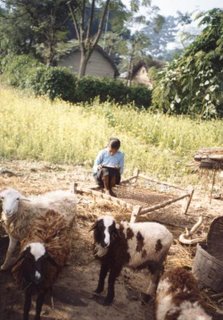 Sapana at home.
Sapana at home.In winter, daily life moves outdoors to make the most of the sun. Sapana is sitting on a 'charpoi', a bed made from a wooden frame with a woven rope base. These beds are popular in summer as they allow air to circulate around the sleepers - in winter they provide a portable seat.
Last year, a local NGO (non-governmental organisation) launched a goat rearing initiative. Sapana's family was provided with a breeding pair of goats and given advice on how to care for them. The first two kids produced were returned to the NGO for distribution to another family; after that all the offspring belong to Sapana's family. This type of project is very useful in a village like Ghumna as it provides livestock to families with no money to invest; a fully grown goat can sell for £20-£30.
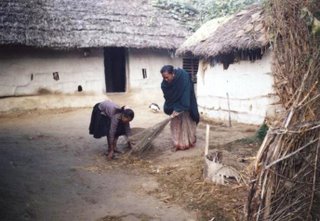
Narayani and her mother.
On the roof of the house on the right you can see cow dung being dried. It will later be used for fuel. Dung fires are very smoky which causes serious eye and breathing problems for women but the only other alternative is wood which needs to be brought from the forest - carried by the women, of course.
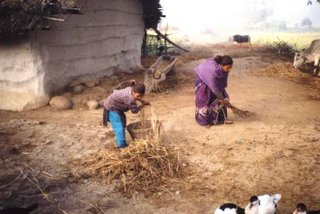 Aruna and her mother.
Aruna and her mother.The first thing that women do in the morning is to sweep the yard around the house. The surface is simply packed-down mud and so it gets dusty during the day and at night the animals are tethered there so every morning it needs to be cleaned. The brooms are made from a strong grass which grows locally and in the background you can see a feed trough made from a hollowed out tree.
Monday, March 27, 2006
Saturday, March 11, 2006
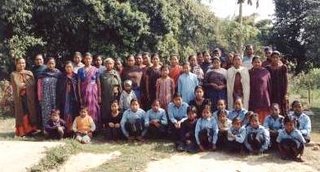
Mothers and daughters.
As well as promoting girls' education, the Social Welfare Committee (SWC) is looking into ways of helping their mothers raise their standard of living so that they can become independent. A number of women have now had training in bamboo craft - bamboo grows locally and can be made into furniture, especially chairs, and also decorations. The women can then sell their work in the market and the SWC is currently looking into setting up a shop in the nearby market town of Lamahi.
These ladies arranged a meeting with me when I was last in the village. They were fascinated to know why you would want to sponsor their children and how you found out about the girls. They also wanted to know all about what we wear and what we eat, how the education system works in the West - and if it is true that it's night in Europe when it's day in Nepal! They had obviously thought a lot about their daughters' sponsors and they were very keen to thank everyone for their support. They were also very keen to stress that if they had been educated themselves, they would now be able to help their own daughters. They obviously felt quite strongly that they had missed out by not going to school; they speak a local language rather than Nepali, and so cannot even understand if their children read their schoolwork aloud.


